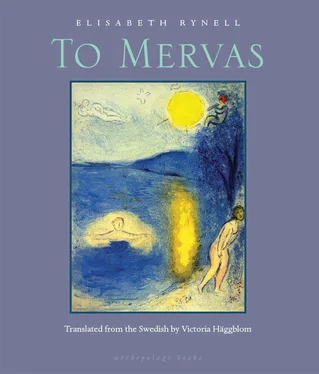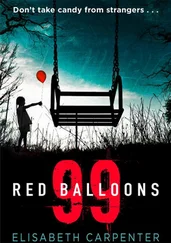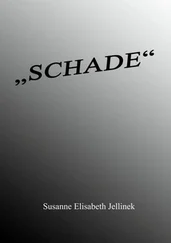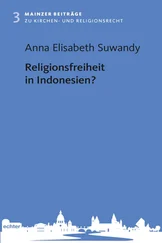I tried to make sense of it but only became increasingly confused. It really wasn’t so surprising that Kosti was in a nonexistent place, considering that he was an archaeologist. I used to be an archaeologist too, once. Now I wasn’t anything, I’d been on disability, as it’s called, ever since I was locked up in the dark city during my time away from the world. Suddenly, I was struck by the notion that perhaps Kosti knew something about all that. The fact that Mervas was an actual mining town made my heart flutter with terror. “The Salt Mine” had been the patients’ name for the ward where I’d been locked up. I tried not to think about this, not to let my mind return there. After all, Kosti was an archaeologist, and it was entirely expected that he’d be in a place like Mervas, an existent but nonetheless shut-down and removed former place.
Our love, or our love affair, lasted for seven, almost eight years. Our meeting at the university was all to Kosti’s credit. We increasingly happened to sit next to one another during lectures and seminars. He always seemed to end up by my side. I was suspicious and grumpy. In my opinion, men only wanted one thing, and that thing was dirty and repulsive. But his smile was so open, he casually said hi, and sank down in the seat next to mine, his body boyishly relaxed and exuding a faint scent, a dry and grassy scent, which distracted me during the lectures. I was both attracted to and frightened by that scent. Before we became friends and started talking to each other, I sat stiff as a board next to him and avoided looking in his direction even when he spoke to me. But I couldn’t avoid his scent. Discreet yet clearly distinct, it surrounded him like a cloud, and I noticed how it did something to me, it sort of prepared a place for him inside me and made me expect his presence.
I truly never thought that another person would want anything to do with me. I’d always been alone, even in my own family; I was somehow the child outside the pack, the odd, lonely sibling viewed as “Daddy’s girl” in a home where Daddy was a monster. It was like collaborating with the Germans in Norway during the war. Or like being a German whore. Thus I was excluded from the pack right from the start. I felt as if I carried something around, a weight, a plague, an unforgivable guilt, and it tormented me; not so much while I was by myself, but as soon as I was among other people. That’s when I felt it; I was a burden. Just as you can never get away from yourself, you can never get away from your family. You’re steeped in its influence, sometimes only a little, sometimes a lot. My family had made me into someone who stayed away. I was ashamed; not just of being Daddy’s girl, but also because of all the despicable things my siblings and I had witnessed and suffered. We’d been made accomplices to something we couldn’t comprehend, and in addition to that shame, I’ve also always felt ashamed of being ashamed. Nothing on earth is as steadfast as shame. I’ve been thinking that if when I get old I feel like embroidering one of those wall hangings with a saying on it, it will say in red cross-stitching: A debt can be repaid, but shame lasts forever . Because that’s how it is.
Despite all this, Kosti stubbornly wanted to be close to me. He kept sitting down next to me and talking to me. My sharp edges and grumpiness never affected him. He often laughed at me, but I was more surprised and amazed than hurt by it. It was as if he freed me from everything difficult, released me from shame and set me free.
Since that time I have realized this: everything catches up with you eventually: your past, your fate, your sentence. It took seven, almost eight years. That’s how long my respite lasted. Sometimes I watch nature films on television. The moments before the lion catches up with the gazelle, the fox with the hare, the wolverine with the reindeer, those are the glowing moments, the moments of life’s ultimate freedom. Then come the claws, the teeth, the fall. It’s as if I already knew it, as if it were etched into me; I was the prey.
I remained sitting by the big table in the library with the map open in front of me. I tried to conjure up an image of Kosti and the way he might look now. I even tried to picture him laughing up there in Mervas, if that’s where he was. I wanted to know why he’d written to me, what had made him want to contact me after all these years. Could it be, I asked myself, almost petrified, could he be waiting for me?
Looking back at my life, I know I’ve ruined it. Sometimes I wake up at dawn to something that closely resembles a vision. I see what life is. With piercing clarity, I see it as the unbelievable miracle it is: a tiny bubble, shining in different colors, sailing all alone through a vast, encompassing darkness. It’s a bubble in time, a brief moment on a frequency quickly rushing past, a scene performed only for an instant. I awaken at dawn as if touched, as if burnt by this unfathomable truth. The next moment, I am filled with pain, a sorrow so powerful that it almost suffocates me. It’s not simply that I haven’t made the most of my life; I have also done violence to it.
Perhaps that’s why I’ve decided to go to Mervas. In some way, I already knew this when I went to the library to look through the atlases. I’m going to sell everything I can, get rid of my furniture, the apartment, all my possessions. Then I’m leaving. I’m going to enter my life, enter the shiny bubble. That will be my penance.
Mom died giving birth to my youngest brother, and with that, you might say our family was dissolved. The baby boy was put up for adoption, despite Dad’s protests, and the rest of us were placed with various friends and relatives. We weren’t even allowed to attend Mom’s funeral; the adults thought it would be too traumatic. It was better for us kids if everyone pretended that nothing had happened. I ended up with Dad’s mother, together with my sister, who is two years older. Our three younger siblings were taken in by Mom’s brothers, and they didn’t want anything to do with Dad’s family after what had happened, so I didn’t see the twins or my little sister again until all of us were grown.
I became obsessively organized in an effort to keep everything in place. Nothing could be changed or go wrong; my sense of order in the world depended on it. I was twelve years old and every paper clip and eraser had its own assigned place in my desk drawers. I devoted myself entirely to studying and being good and completed all my assignments, even the extra ones, according to instruction. I was so careful with my brand-new schoolbooks that I hardly dared open them; I sort of peeked in between the pages through a three-inch opening. I was also reluctant to erase anything in my pristine notebooks. Instead, I tried to train myself always to write correctly from the start. Everything in my life had to be at once transparent and impeccable; there could be nothing to remark upon or criticize. This applied to my hair, my thoughts, my schoolwork, my desk drawers, and my feelings; everything had to fit into the same mold of perfection. In a diary from this period, I’d made lists of “reasons to be happy” and “reasons to be sad.” I found the old diaries a few years ago when I cleaned out the upper cupboards in the hallway, and they made for miserable reading, which definitely belonged in the second category. Getting a perfect score on a math test was an obvious reason to be happy, but being second best or one point off was a reason to be sad. Overall, the reasons for being happy were few and rather vague: “nice weather,” “cabbage pudding for dinner,” “funny movies.” There were more reasons for being sad or upset, and they were more detailed. “A letter from Dad” was high on that list, along with “praise from people I don’t respect” and “stomachache,” which meant I was having my period. I’d also written down “nightmares,” but that was in parentheses, and later crossed out. Dreams weren’t reliable. Neither was my body.
Читать дальше












